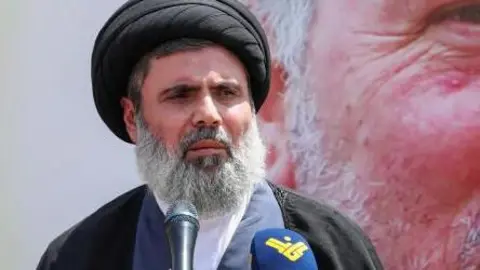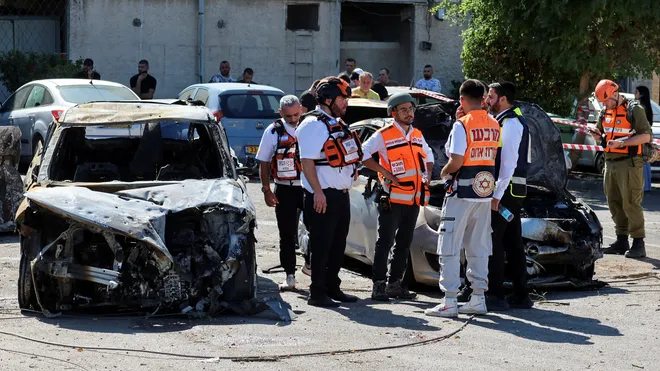Hezbollah confirmed Wednesday that Hashem Safieddine, widely expected to become the militant group’s next leader, was killed in an Israeli airstrike near Beirut earlier this month, marking the second major leadership casualty following the death of Hassan Nasrallah in September.
The organization mourned Safieddine as “a great leader and a great martyr” who lived an “honourable life.” His death represents a significant blow to Hezbollah’s leadership structure, coming just weeks after Nasrallah, his cousin and the group’s secretary general, was killed in an Israeli strike on Lebanon’s capital.

Israel Defense Forces (IDF) announced Tuesday night that Safieddine was eliminated along with Ali Hussein Hazima, identified as Hezbollah’s Intelligence Headquarters commander, during October 4 airstrikes near Beirut’s airport. Israeli officials accused Safieddine of directing “terrorist attacks against the State of Israel” and participating in the organization’s “central decision-making processes.”
Safieddine, approximately 60 years old at his death, had deep ties to Iran, having undertaken religious studies there. His son was married to the daughter of Gen. Qasem Soleimani, the Iranian Revolutionary Guards commander killed in a 2020 U.S. airstrike in Iraq. Both the United States and Saudi Arabia had designated Safieddine a “global terrorist” in 2017.

In a prescient summer speech in Beirut, Safieddine had addressed leadership succession within Hezbollah: “In our resistance, when any leader is martyred, another takes up the flag and goes on with new, certain, strong determination,” he told AFP news agency.
The confirmation comes amid escalating cross-border violence, with Israel intensifying operations against Hezbollah following months of hostilities sparked by the Gaza war. Lebanon’s health ministry reports at least 2,500 Lebanese deaths and nearly 12,000 injuries over the past year, while Hezbollah’s rocket and drone attacks have killed 59 people in northern Israel and the occupied Golan Heights, according to Reuters.
Hezbollah, which combines military, political, and social operations in Lebanon, is designated a terrorist organization by Israel, the United States, the United Kingdom, and other nations, though it maintains considerable influence within Lebanon’s power structure.



